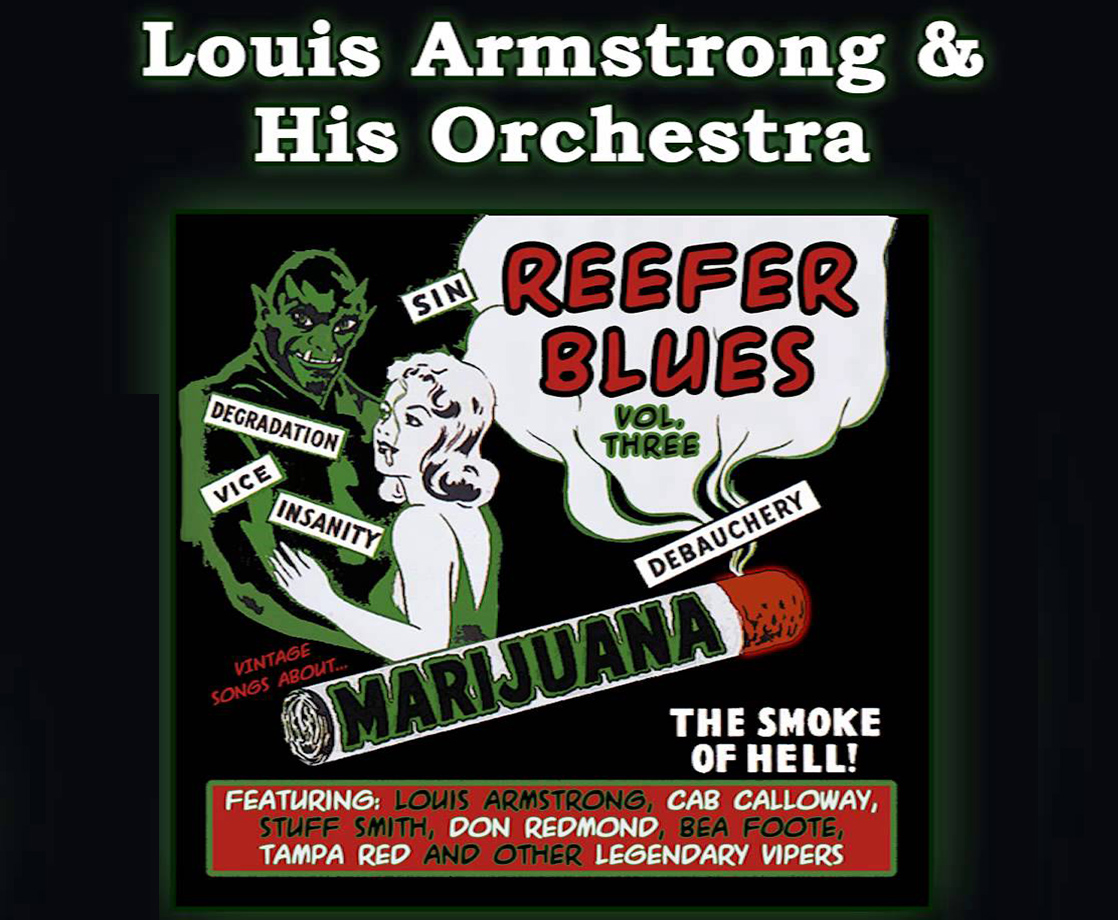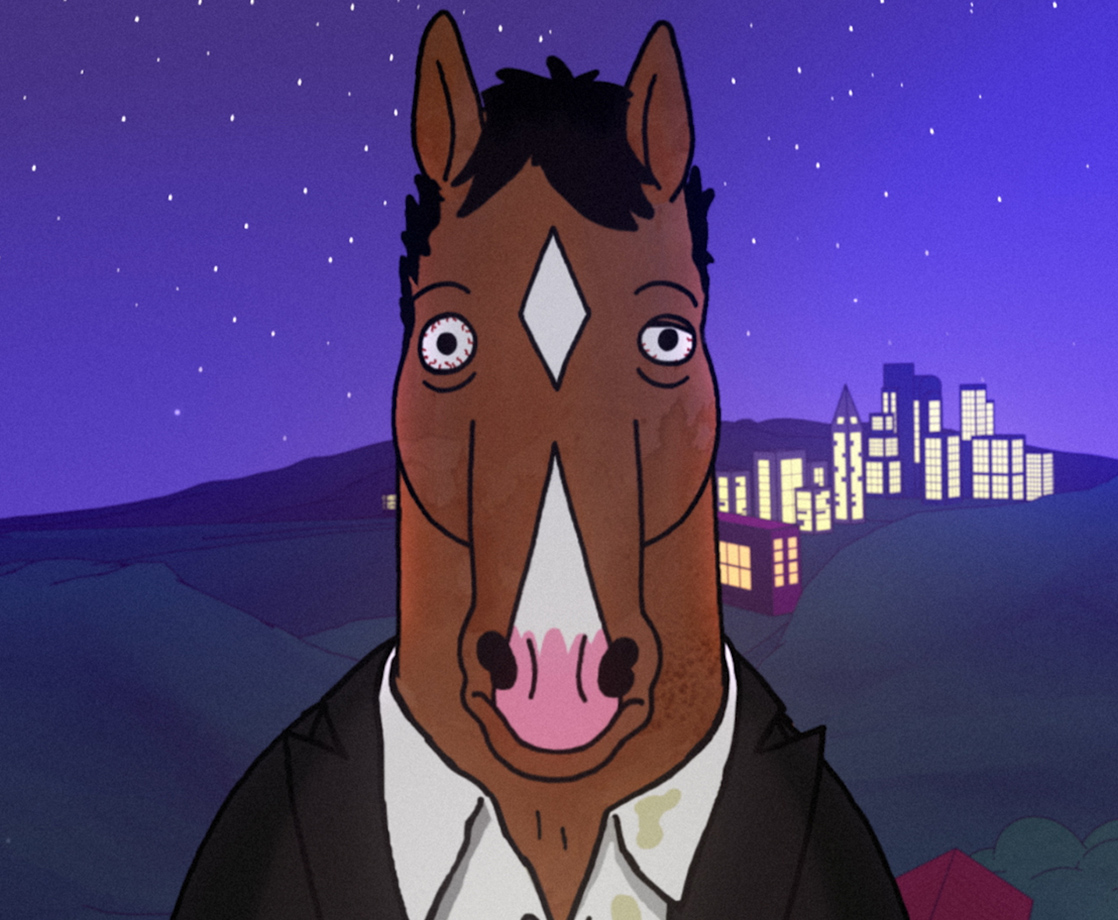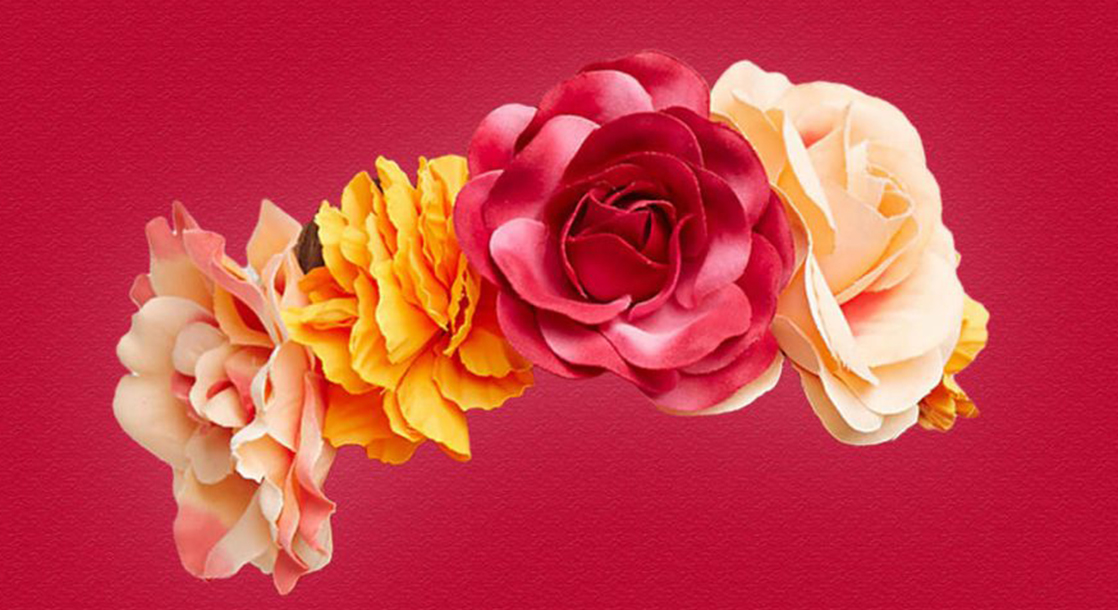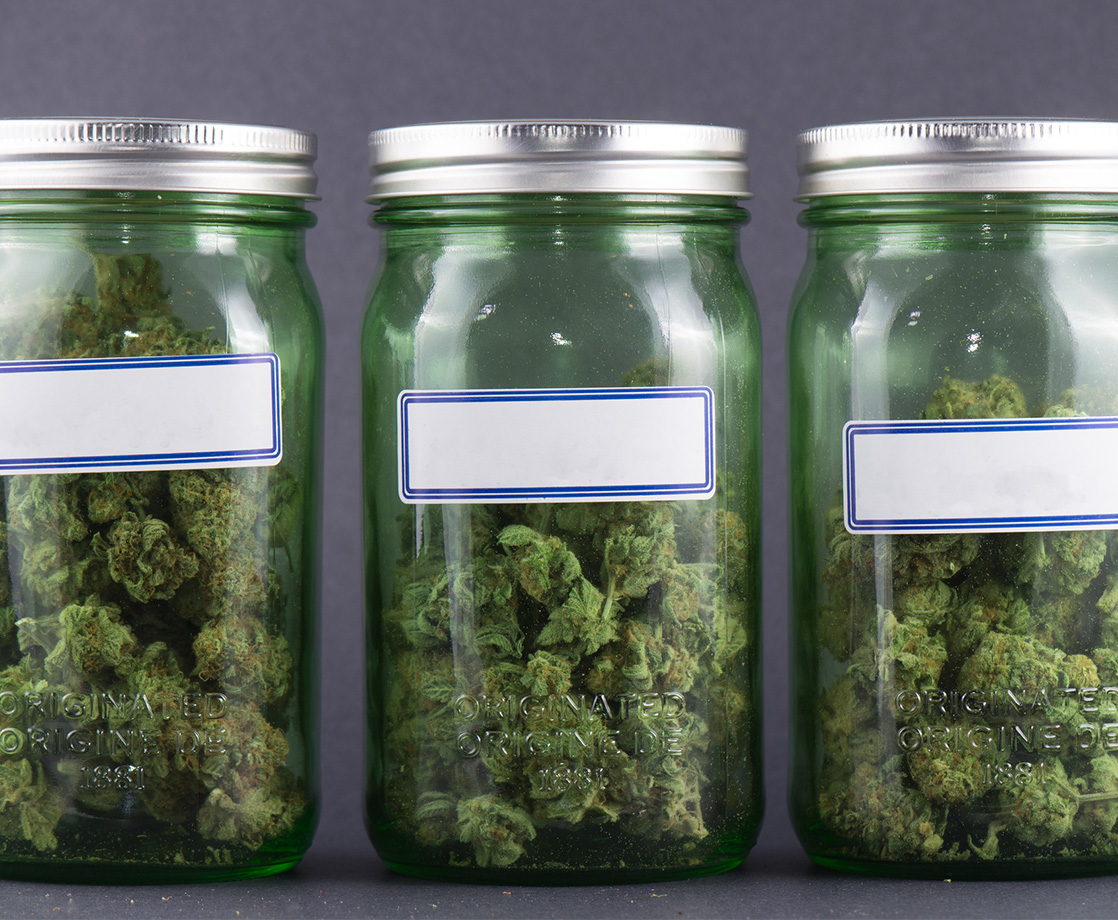In our new series, "HiTunes," we'll be investigating various marijuana lore throughout music history, debunking myths and sifting through hazy rumors for the blunt truth. What came first, Jimi Hendrix's "Purple Haze" or the purple haze strain? Why have multiple artists written songs warning others about smoking with Willie Nelson? Is Redman's song "How to Roll a Blunt" actually an effective instructional guide? We'll explore these urban legends and more, but first we're starting from the beginning.
The Legend: Depending on which baby boomer you ask, either cannabis wasn't a mainstay in the music industry until the '60s, or you weren't allowed to sing about anything fun until the '60s.
Both assumptions are based in easily-observable truth, but they're overstated.
Compare the '57 Chevys, malted milkshakes, and hip-wiggling commonly associated with '50s rock 'n roll to the imagery associated with music a decade later — long hair, free love, acid tests, psychedelic album art — and it's very clear that marijuana's prevalence in the arts increased over a short period of time. The '60s also saw increased lyrical freedom. Let's use the most profane word in the English language as an example. There's a solid handful of songs by popular artists released on major labels in the '60s that contain the word "fuck," including The Doors' "The End," Jefferson Airplane's "We Can Be Together," and Al Stewart's "Love Chronicles." Before that, you'd be extremely hard-pressed to find a well-circulated song prominently featuring the expletive.
But let's be honest: people have always loved saying "fuck" and musicians have loved ganja long before it became part of mainstream music culture. Do a little digging and you'll find that some dude named Eddy Duchin recorded a version of Louis Armstrong's "Ol' Man Mose" in 1938 in which he subbed out the word "bucket" for "fuck it." Similarly, you can find quite a few tracks that explicitly reference marijuana decades before the '60s established tunes and toking as birds of a feather. Below, we'll explore some historic songs in an attempt to figure out which record was the first to overtly mention grass.
The Popular Answer: Cab Calloway's "The Reefer Man" (1932)
There's no misconstruing this one as innuendo or metaphor. This track, first recorded by theatrical bandleader Cab Calloway, opens with a skit that's like the Prohibition Era equivalent of a Cheech and Chong bit. Calloway — in conversation with one of his bandmates — observes a man who's "full of that reefer," to which someone responds, "You mean that cat's high?!" What follows is a funny, slightly derogatory song about a stoner (not a dealer as the title might imply) who thinks he can walk on water and confuses watermelons with pickles.
Although not amounting to much more than a light, "Potheads, am I right?" critique, Calloway's song was probably the first to describe the actual effects of cannabis, even if he was exaggerating. Coupled with the song's blatant title, "The Reefer Man" is a common answer for "first weed song," reflective of the marijuana-infused Harlem jazz scene of the '20s and '30s. Other fixtures of the era also recorded covert odes to the plant using various slang terms. For example, there was "You'se a Viper," first recorded by Stuff Smith in 1936, with "viper" being a code word for a fellow pothead, due to the hissing sound made by pulling on joints. Another popular slang term was…
The Dark Horse: Louis Armstrong's "Muggles" (1929)
Before the word was co-opted by J.K. Rowling, "muggles" or "mug" was another Harlem nickname for weed. Jazz legend Louis Armstrong was a noted cannabis fan — once cracking jokes about getting high on a TV appearance, and commonly cited as the first celebrity arrested for possession — and this 1929 instrumental is said to be his ode to the herb. Obviously, "Muggles" is nowhere near as explicit as "The Reefer Man," but you could argue that Armstrong was trying to recreate a high with his tranquil, soaring composition. Brownie points for predating Calloway's track and also portraying weed in a more positive light. But if we look back beyond popular music scenes and into the realm of folk music, there are even older examples of musicians paying homage to cannabis.
The Truth (Probably): "La Cucaracha"
Everyone knows this traditional Spanish song, which some accounts date back to the Middle Ages, and most agree was brought ashore to Mexico in the early 19th Century. Although it originated in Europe, the song is commonly associated with Mexico, mostly because of its increased popularity during the Mexican Revolution in the 1910s. During this time, soldiers on both sides would write new stanzas that commented on politics or satirized their opponents, which is a common feature of most folk music around the world. One particular verse has stuck with the song throughout the past century, and it just so happens to contain a literal mention of the word "marijuana."
Sung by members of Pancho Villa's revolutionary army, this version poses then-Mexican president Victoriano Huerta as the titular cockroach, critiquing his allegedly aggressive drinking and smoking habits. Here's the English translation of the verse in question:
The cockroach, the cockroach
Can't walk anymore
Because it doesn't have, because it's lacking
Marijuana to smoke
Unless Huerta had access to some potent sativa, that's a pretty odd way to portray a weed habit. Regardless of its accuracy, this verse has remained one of the most popular in modern renditions of "La Cucaracha." On multiple occasions, Looney Tunes made use of this version during Speedy Gonzales episodes, usually to contrast him with his lethargic friend Slow Poke Rodriguez.
Modern bands like the Gipsy Kings have sung this stanza in their renditions of "La Cucaracha," too. And while you probably won't hear the average mariachi band name-drop mary jane in a modern-day rendition, it doesn't discredit the original song's lyrics that nod to the sweet leaf. Since the origins of folk songs are hard to track, with songwriters frequently uncredited, it's hard to confirm with full confidence that "La Cucaracha" is the OG weed tune. There very well may be earlier, less widespread songs that name-drop marijuana, but as far as we know, some Villist soldiers in the 1910s made history when they got wind of their ruler's proclivity for pot.
Follow Patrick Lyons on Twitter.











